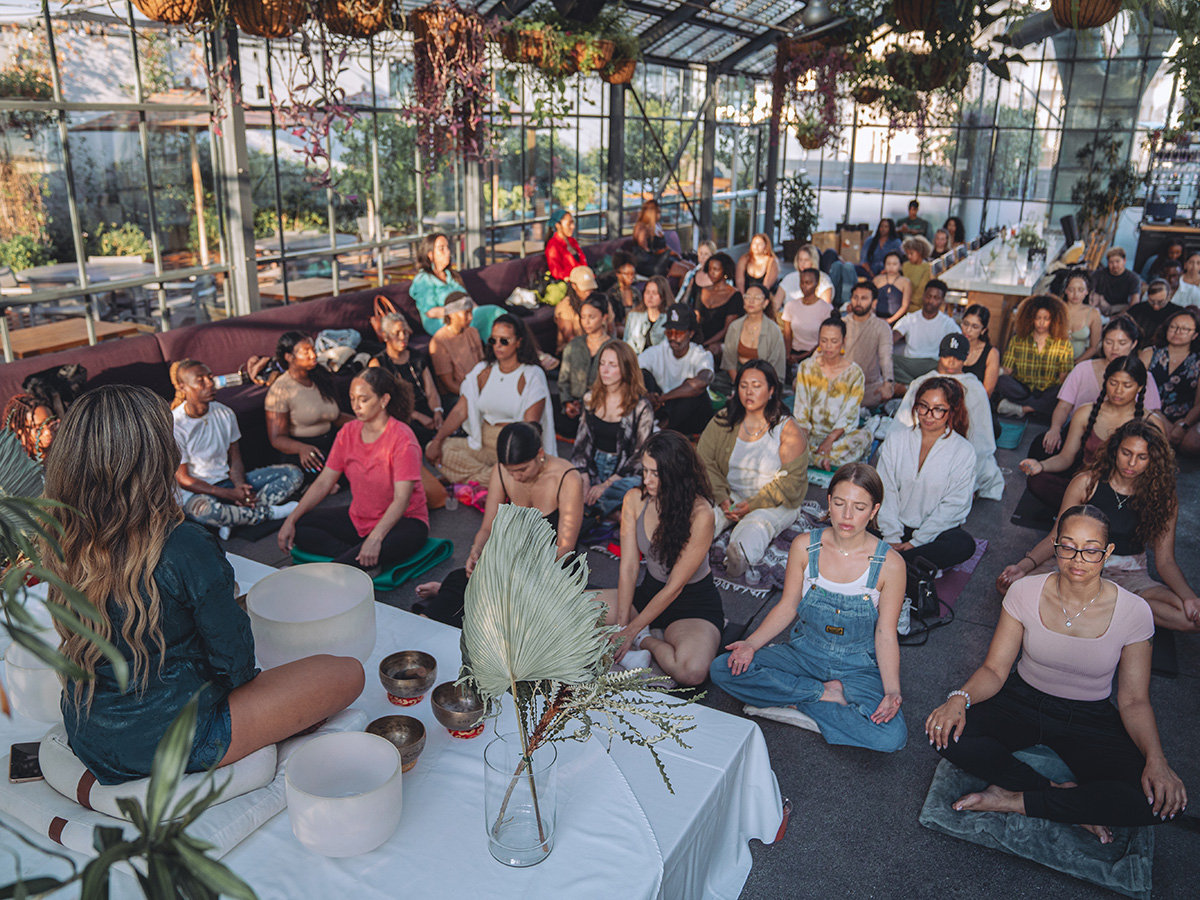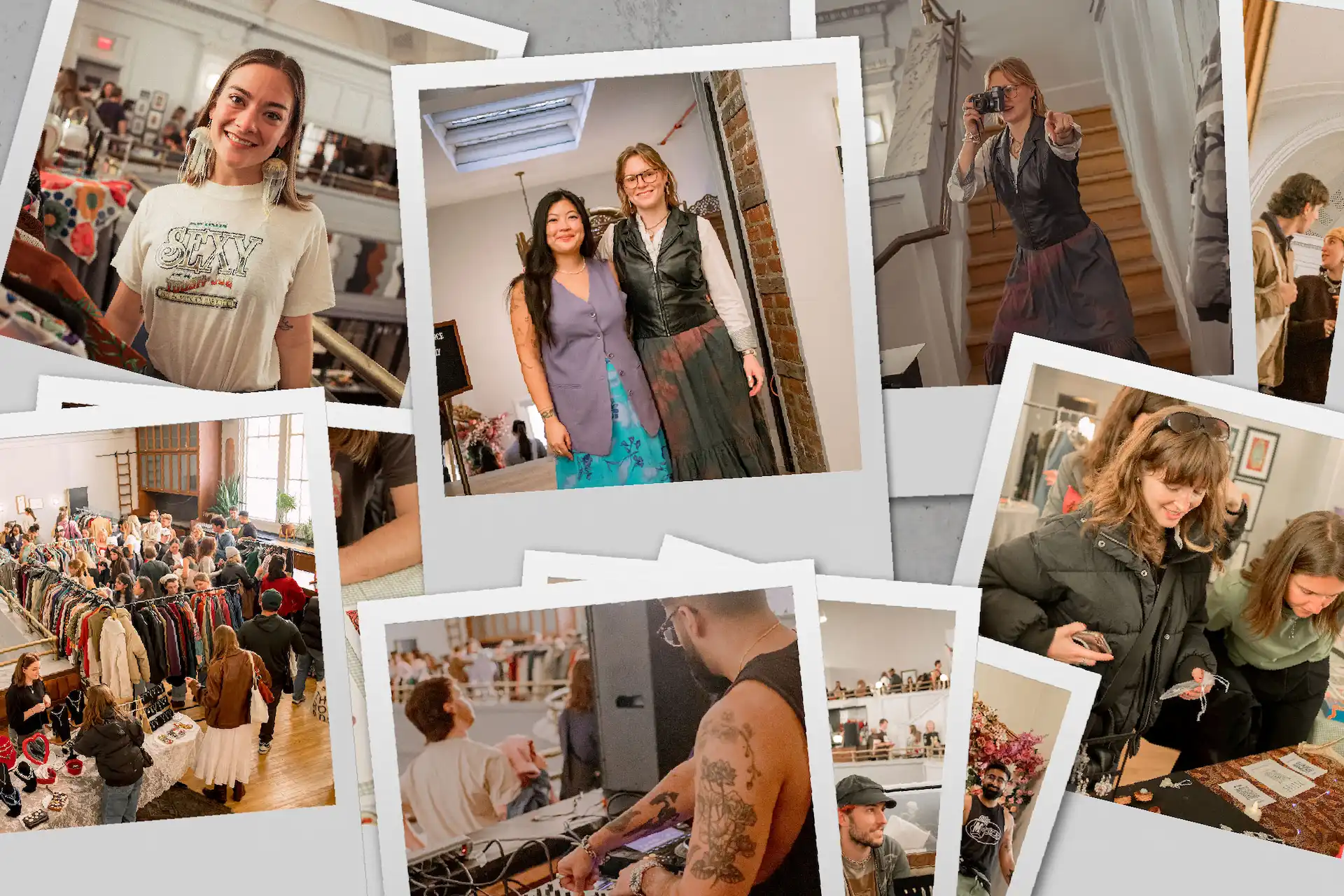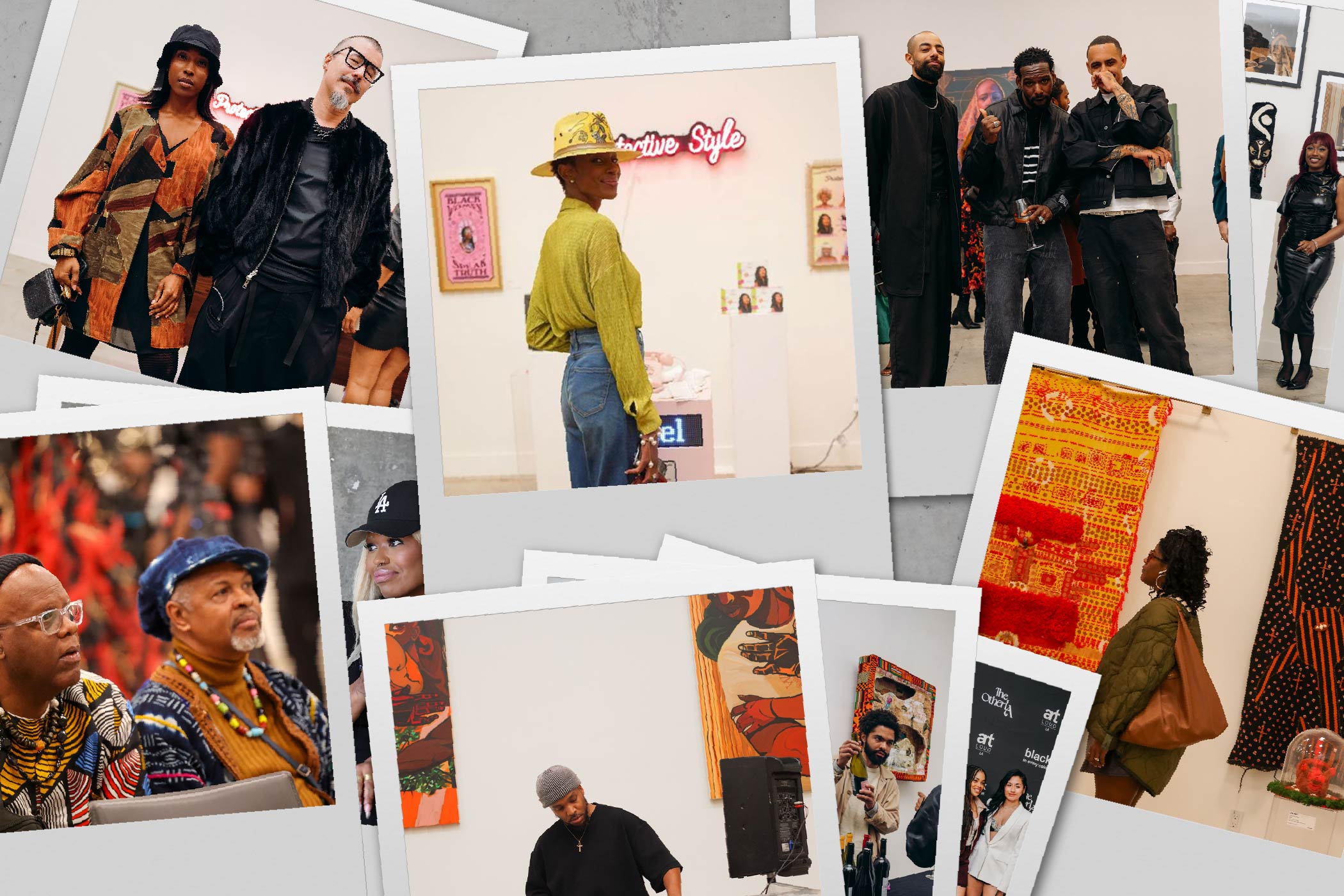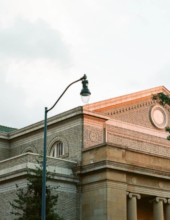Awakening the Heart — Thalia Ayres Randolph
on Sound, Spirit and Daily Ritual
Host Jack Inslee
Join Jack Inslee as he speaks with Thalia Ayres Randolph, a multidisciplinary healing artist who hosts free yoga and sound bath events at the LINE LA. In this intimate conversation, Thalia shares her journey from a spiritually rich childhood to becoming a full-time healer, revealing how a transformative experience in South Africa shaped her calling. She offers practical wisdom on breathwork, daily rituals, and the profound healing power of sound, making ancient practices accessible for modern life. Whether you’re new to meditation or seeking deeper connection, Thalia’s insights remind us that awakening is our birthright and healing begins with simply listening.
Jack: Welcome back to Hear, HERE. I’m your host, Jack Inslee, coming to you live from the LINE LA in Koreatown. I’m here with Thalia Randolph, who hosts free yoga and sound bath events here at the hotel. She’s a multidisciplinary healer. Thalia, tell us about yourself—who are you and what do you do?
Thalia: My name is Thalia Ayres Randolph. I go by Ayres when I’m teaching. I’m a multidisciplinary healing artist working with many different modalities. I’m most known for sound healing and sound baths, but I’ve also been a yoga teacher for 12 years and I’m a Reiki Master and end-of-life doula.
Jack: Tell me about your journey. I know you were introduced to yoga, shamanism, and A Course in Miracles at a young age.
Thalia: My parents introduced me to meditation, yoga, and spirituality. They were open to exposing me to different religions. I grew up Christian, but they were always tapped into Buddhist philosophy and other teachings. A Course in Miracles came as a gift from my godmother in 2008.
On my dad’s side, I come from a long line of Baptist ministers and preachers. What I do isn’t Christian-based, but I feel that connection to spirit and wanting to create space for people to have their own spiritual connection through meditation and sound healing.
My godmother introduced me to sound healing. She’s a psychic medium who works in the esoteric world, and I was always fascinated by her stories. She mainly assists people with end-of-life transitions—usually sudden deaths and families trying to connect with deceased loved ones. I’ve always felt comfortable with death, dying, and the spirit realm.
For a long time, this was all private. When I’d try to talk to friends about it, they’d be confused. It was a safe space at home with family and close friends. I never thought it would become my calling or career—I saw these as gifts people had alongside their regular jobs. It wasn’t until I did my first yoga teacher training that I realized this could be a pathway within the healing arts.
Jack: It’s interesting that you’re multi-generational in this work. Many people come to healing through personal hardship. That brings me to a word I’ll probably mispronounce—tell me about your experience in South Africa and how it shaped your journey.
Thalia: In 2012, I took a sabbatical and moved to Cape Town, South Africa, staying in a beach town called Camps Bay. I didn’t have connections there—just something pulling me to go. I visited a township called Langa and a preschool there called Thabo, which means “to bring light” in Xhosa. Their mission was to plant seeds of light in every child’s mind so they could realize they’re bigger than their circumstances. Seeing that spiritual foundation in preschool deeply touched me.
I did self-guided retreats there—waking with sunrise, morning meditation, personal yoga practice, simple days at the beach, cooking, then sunset meditation. Through this daily ritual, I started having moments of awakening every night while sun gazing. I had visceral experiences you can’t know until you have them yourself—feeling inter-being, connected and one with everything around me. No separation between the stars, sun, people, plants, animals, ocean. Just intense oneness.
From that point forward, I realized everyone needs to feel this. We’d have so much less suffering and conflict if people had their hearts awakened. So much of what’s happening in the world is calling us to awaken the heart center.
Jack: I struggle with morning rituals, especially grabbing my phone first thing. What are your thoughts on starting the day mindfully?
Thalia: How we start and end each day matters—we have to reclaim our state of mind. In Buddhism, there’s a practice called mindful consumption. Our devices are so accessible, usually on our bedside, so it becomes a habit, energy to grab them first thing when we wake up, and before bed. It’s an awful way to prepare your mind for rest, then people wonder why they have insomnia.
Every day doesn’t look rigid for me, but I have rituals: waking up, making tea or coffee, taking my dog on a silent walk, not filled with music or podcasts, just taking in nature, hearing birds, having slow starts to the day. I never set an alarm unless I have to be somewhere early. If I don’t have early commitments, I let my body naturally wake up. Everyone’s circadian rhythm is different—not everyone needs to wake up at 7 AM.
At night, I’m usually in a bath, unwinding. You don’t want your practice to feel like a to-do list item. It’s about having the intention: “This morning, what’s going to support me?” Ask yourself that, pause, and wait to hear the answer instead of doing something because you saw it somewhere. Build that deeper, intuitive connection with your body.
I say this at the end of yoga classes: “Quiet the mind. Ask yourself what you need and wait to hear the answer.” Your body will tell you—maybe you don’t need that twist or to copy the person beside you doing a bridge. Maybe you just need to rest. Our body has natural intelligence and is always communicating with us. We just need to slow down and listen.
Jack: It can feel overwhelming thinking about all the things I can do to improve—diet, meditation, yoga, working out, sleep. Where’s a good place to start when it comes to healing ourselves?
Thalia: Start with your breath—it’s one of the most powerful tools to shift our state of being. The simplest breath is breathing in through the nose and out through the nose. In yoga, that’s ujjayi breath, the standard breath for practice. This breath helps calm and balance the right and left sides of your brain, bringing your brain into equilibrium so your body can go into homeostasis.
Remember: balance breath, balance mind. That’s how we control our internal world. There’s so much happening outside us that can affect us. How do we reclaim what we feel inside? There’s chaos, and our mind, heart, and gut can absorb all that chaos. But it’s our job to shift that energy, and one of the biggest ways is simply through breath.
It’s layered—you can’t embody everything at once. That’s why these traditions have systematic approaches. You add one thing at a time, and your practice deepens over time. You can add more, but you can’t embody everything suddenly at the same time.
Jack: Let’s talk about sound healing. Everyone has different ideas of what it is. What does sound healing mean to you?
Thalia: Sound healing is such a broad term. My first introduction was through my godmother, who uses crystal singing bowls to clear energy in physical spaces and people’s energy fields. I was gifted a singing bowl when I completed my first yoga teacher training and started using it during Shavasana as a way to deepen meditation—when students are lying down with eyes closed at the end of class.
I found students would fidget during stillness, but with sound, it gives the mind something to focus and anchor on. You become more comfortable with stillness. When I started teaching meditation, I got more singing bowls and used them as music for meditation because people responded deeply and dropped in when I used these instruments.
It makes meditation more accessible. If someone’s told to sit for 30 minutes, it can feel impossible—”I can’t sit still for 10 seconds, let alone 30 minutes.” When sound is incorporated, it gives the thinking mind a place to rest so the body can relax.
One of my yoga mentors, who’s also a percussionist, took me under her wing and taught me the science behind the bowls, energy anatomy with instruments—crystal bowls, Tibetan singing bowls, African drumming, djembe, and gong. I assisted her classes for three years, which was a beautiful give-and-take of learning and experimenting.
Jack: How did you end up focusing more on sound healing?
Thalia: When I moved to LA in 2015, sound healing was less popular here—it was more acrobatic yoga styles. I experienced culture shock because in Arizona, people had been tapped into these practices longer. Here, it was still very much about the physical body, crazy inversions, and arm balances.
Then, in 2016, I got into a terrible car accident on the 101 at the Hollywood Bowl exit. My car was totaled, I was injured—spine, back, hips, knees—and I couldn’t teach physical yoga anymore. But in my trunk, my crystal singing bowls were the only things that didn’t break. I can’t make that up. They’re made of quartz crystal—drop them and they break instantly. Nothing broke, and they’re still the same set I play today.
I took it as a sign. Luckily, I found an amazing place called The Springs. When I told the yoga director about my accident, instead of taking me off the schedule, she said, “I’ve seen your resume. You’re certified in all these modalities, yet you’re only teaching one. Keep your time slots but teach something else.”
In meditation, I realized that if I’m a true teacher of yoga, I don’t need to be teaching just physical practice. That’s only one aspect—the last aspect added to yoga. Yoga is about union and the different practices that help us find union. From that point forward, I started teaching predominantly sound healing with restorative postures—gentle poses supported by props where you rest for five to seven minutes, then I guide meditation and sound healing.
If it wasn’t for that accident, I wouldn’t be doing everything I do now. I still teach vinyasa yoga, but what I’m most known for and what draws the most people are my sound healing meditation sessions.
Jack: What makes doing this work at the LINE unique?
Thalia: The gatherings I host here at the LINE LA are genuinely my favorite thing I do. I started this residency partnership in 2021, and it’s been one of the most beautiful blessings because I get to offer these practices free of charge.
When you work in wellness, it’s hard to value yourself, hard to know what to charge, and hard to make things accessible in expensive cities. Being able to offer these sessions here frequently—I don’t know any other organization that offers not just what I do, but Tai Chi, Qigong, tarot in the lobby, so many different incredible activations and practices, whether wellness or arts.
The number of people who show up—150, 200 people signing up, and they actually show up—shows that people are hungry for having a space they can come to consistently, where they know they’ll get a certain level of experience. What we’re doing is experiential, artistic. There’s really nothing like it anywhere.
Jack: Any final takeaways for being more mindful in this world?
Thalia: Awakening is your birthright and can never be taken away from you. It’s so important to keep our minds liberated and not become enslaved within our mind. There are scary things happening politically, and while I don’t attune deeply to world events and politics, I think it’s important not to let external forces dim your light.
An awakened mind is one of the most powerful things on the planet. Keep your mind awake, open, skeptical, but listening—that’s most important. If you think about anyone who’s been assassinated, it’s someone who had a liberated mind, inspiring others to liberate their minds.
The second thing I’d share is that we’re never truly alone. Many people feel isolated and hopeless, and those feelings create suffering within the body, which we then create outside ourselves through how we speak and act. Just remember you’re never truly alone. There’s a whole world available to each of us, but it’s a non-physical world—the world we tap into when we meditate and connect deeply.
Through developing that intimate connection with yourself, your higher self, the cosmos, you realize you’re not separate from anything and you’re never alone. This illusion of separation is what causes so much suffering.
Jack: Thank you so much for joining me and sharing all of that. Listeners can find Thalia’s free workshops at the LINE—go to thelinehotel.com and check out the calendar. I’ve been Jack Inslee, this is Hear, HERE from the LINE LA in Koreatown. Until next time, peace.
This transcript has been edited for length and clarity.
Listen to the whole story above, and follow along on Spotify.
Photo by Brooke Olsen.







